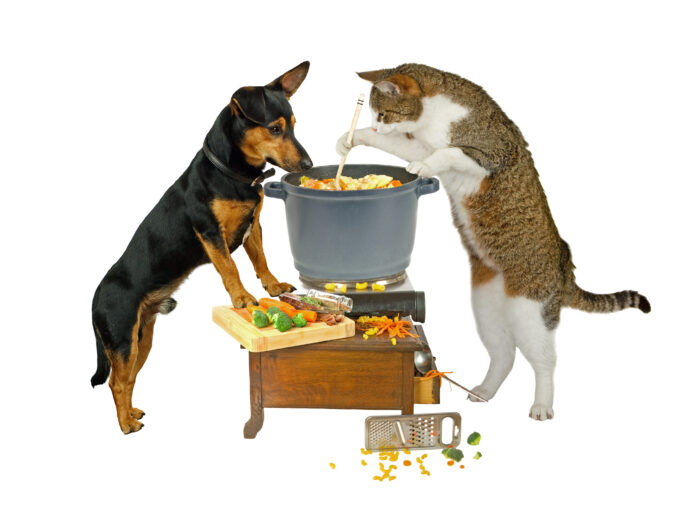Understanding Pet Nutrition: A Guide for Pet Owners
Choosing the right food for your pet can be a daunting task, given the plethora of myths and misinformation surrounding pet nutrition. As pet owners strive to make informed decisions, it is crucial to rely on accurate, evidence-based information. This article aims to guide you in selecting the best diet for your beloved furry companion while addressing the complexities of home-cooked dog and cat meals.
Key Questions to Consider About Your Pet’s Food
To ensure your pet receives the appropriate nutrition, it’s essential to ask the right questions:
- What are the nutritional requirements for my pet’s specific breed and age?
- How does the ingredient list align with my pet’s health needs?
- Are there any common allergens in the food I’m considering?
For more in-depth guidance, we encourage you to explore our resources on the critical questions every pet owner should ask regarding their pet’s diet.
When to Avoid Home-Cooked Diets for Pets
While some pet owners consider preparing home-cooked meals as an alternative to commercial pet food, there are specific situations where this practice should be avoided:
1. Young, Growing Pets
Pets under a year old (less than 12 months for cats and most dogs; less than 18 months for giant-breed dogs) require a balanced diet essential for proper growth and development.
2. Pregnant or Nursing Females
Expectant or nursing pets have heightened nutritional needs that may be challenging to meet with home-prepared diets.
3. Overweight Pets on Weight Loss Plans
Crafting a proper weight loss diet can be intricate, and home-cooked meals may not suffice to provide the necessary balanced nutrition during this transition.
4. Most Cats
Many cats are reluctant to consume a balanced home-cooked diet, which can result in nutritional deficiencies.
Critical Considerations Before Opting for Home-Cooked Meals
Even if your pet does not match the above criteria, carefully evaluate the feasibility of a home-cooked diet:
- Home-cooked diets are typically more expensive and time-consuming than commercial options, requiring a significant commitment.
- Medical conditions often do not necessitate a home-cooked diet; there are effective therapeutic diets available that are well-supported by research.
- If your pet shows initial enthusiasm for home-cooked meals, they may refuse nutritionally balanced recipes later when required.
- Switching a pet on a home-cooked diet to a commercial one can pose challenges, particularly when addressing specific health issues.
Best Practices for Preparing Home-Cooked Diets
If you decide to prepare food for your pet, follow these guidelines to ensure their health and safety:
- Consult our resources on home-cooked diets to understand common pitfalls and associated risks.
- Avoid any diet containing raw or inadequately cooked meat to prevent health issues.
- Work with a Board Certified Veterinary Nutritionist® for a balanced home-cooked diet recipe.
- Utilize reliable resources like BalanceIT, which provide recipes created by Veterinary Nutritionists.
- Adhere closely to the recipe, as deviations can lead to nutritional deficiencies. A study revealed that only 13% of pet owners followed their original recipe after one year, risking their pets’ health.
Remember to inform your veterinarian about your pet’s diet and to monitor their health as recommended. Providing the best nutrition for your pet is a continuous journey that requires ongoing attention and care.
Conclusion
Choosing pet food shouldn’t be a source of confusion. With accurate information and the right guidance, pet owners can confidently select the best dietary options for their furry friends. Whether you choose to feed commercial food or home-cooked meals, it is vital to make informed decisions that prioritize your pet’s health and well-being.











